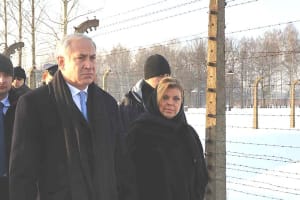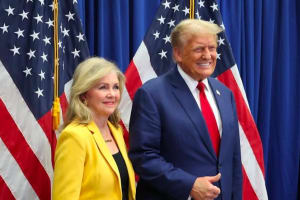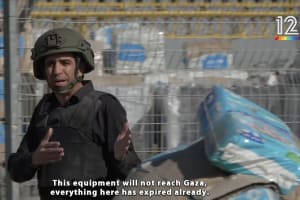Netanyahu criticizes Russia’s 'dangerous' cooperation with Iran in top-level phone call with Putin

Israeli Prime Minister Benjamin Netanyahu spoke on the phone with Russian President Vladimir Putin on Monday, voicing displeasure with Russian ties to Iran.
The two leaders reportedly discussed several issues on the 50-minute call and Netanyahu particularly expressed "robust disapproval" of Russia's "dangerous" cooperation with Iran, according to the Israeli statement.
The Islamic Republic of Iran is providing military and financial support to its terror proxies – Hamas in Gaza and Hezbollah in Lebanon – against Israel.
Iran is also backing the Yemeni-based Houthi terror militia and the Syrian-based terror militias against both Israel and American forces stationed in the Middle East.
In addition, Iran has also provided Russia with military drones that Moscow has deployed in its ongoing war against Ukraine.
The Israeli leader also blasted Moscow’s anti-Israel position during the ongoing war with the terror organization Hamas. Netanyahu reportedly stressed his position, saying, “any country that would suffer a criminal terrorist attack such as Israel experienced would act with no less force than the one in which Israel operates.”
Unlike most Western democracies, Russia has not publicly condemned the Hamas massacre of more than 1,200 Israelis on Oct. 7 that triggered the ongoing war in the Gaza Strip.
In late October, the Russian government hosted a senior Hamas delegation in Moscow, which led to a further deterioration of diplomatic ties between Moscow and Jerusalem.
Putin's regime also backed a recent United Nations Security Council (UNSC) resolution that demanded an immediate ceasefire of the Hamas war, but failed to condemn the Islamist terror group for its unprecedented war crimes in Israel and against its own civilians by using them as human shields.
The United States eventually vetoed the resolution, arguing that it was biased against Israel and “divorced from reality,” as Hamas still threatens the Jewish state’s security.
“The prime minister expressed his annoyance over anti-Israel stances by Russian representatives at the United Nations and other fora,” read an official statement released by the Israeli Prime Minister’s Office in Jerusalem.
Netanyahu, however, did thank Putin for its diplomatic efforts toward the release of three dual Russian-Israeli nationals in November who were being held hostages by Hamas in Gaza.
Russia has consistently criticized Israel’s military efforts in Gaza as “disproportionate.” Foreign Minister Sergey Lavrov recently accused Israel of using “collective punishment” against all Gazans.
“We do not believe it’s not acceptable to use this event for collective punishment of millions of Palestinian people with indiscriminate shelling of the civilian quarters,” Lavrov said while addressing the recent Doha Forum.
The Russian foreign minister ultimately blamed the United States for the ongoing violence in the Middle East and claimed that the failure to implement a two-state solution has undermined regional stability.
“The single most dangerous factor igniting extremism in the Middle East is the unsolved nature of the Palestinian state,” Lavrov said.
Palestinians, however, have historically and consistently rejected a peaceful two-state solution since it was first presented by the British Peel Commission in 1937, as well as the UN Partition Plan in 1947 and in Camp David in 2000.
Russia’s top diplomat also failed to mention the Iranian regime as the main engine for igniting radical Islam across the volatile Middle East region, including the Gaza Strip and Judea and Samaria, known as the West Bank.

The All Israel News Staff is a team of journalists in Israel.













